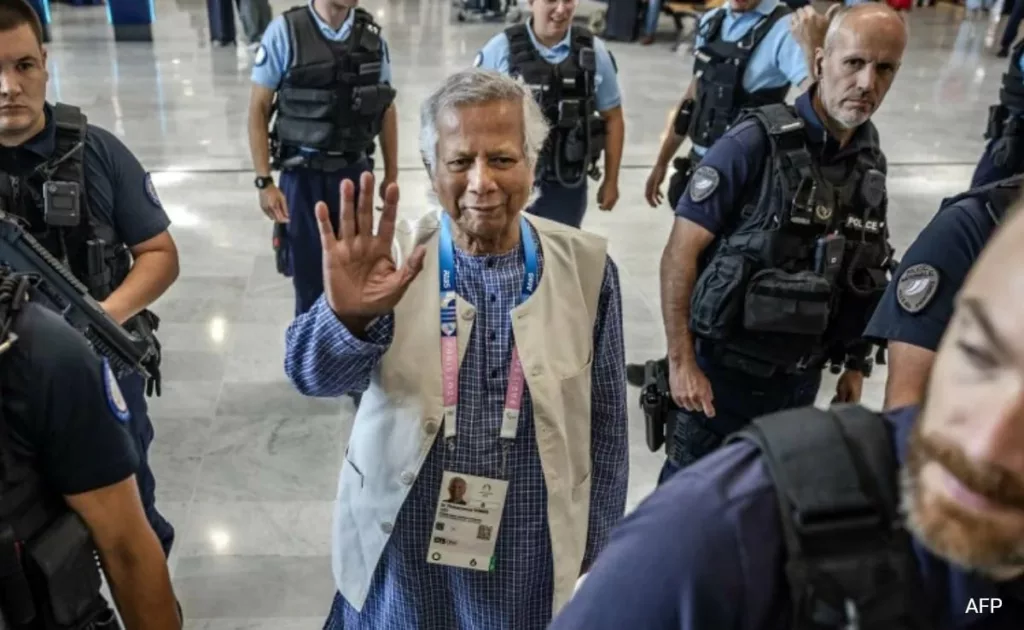- The army chief said the advisory council to be led by Mr Yunus may have 15 members. Bangladesh President Mohammed Shahabuddin on Tuesday appointed Mr Yunus, 84, to head the interim government after the violent ouster of former pro-India Prime Minister Sheikh Hasina.
- Mr Yunus will lead Bangladesh through a “democratic process” when he arrives in the country to helm the interim government, General Waker said.
- “He is very eager to do this,” the General said in a televised address to the nation. “I am certain that he will be able to take us through a beautiful democratic process and that we will benefit from this,” he said.
- Mr Yunus also said today he was looking forward to helping the country overcome its current turbulence. “I’m looking forward to going back home, see what’s happening and how we can organise ourselves to get out of the trouble we are in,” he told reporters before boarding a flight at Paris’ Charles de Gaulle airport bound for Dubai, where he will take a connecting plane for Dhaka.
- The Nobel-winning microfinance pioneer has asked for calm after weeks of violence in which at least 455 people were killed. “If we take the path of violence everything will be destroyed,” he added.
- The appointment came quickly after student leaders called on Mr Yunus — credited with lifting millions out of poverty in Bangladesh — to lead. The decision was made in a meeting with President Mohammed Shahabuddin, the heads of the army, navy and air force, and student leaders.
- Mr Yunus will have the title of chief adviser, according to Nahid Islam, one of the leaders of Students Against Discrimination who participated in the meeting.
- A Bangladesh court today acquitted Mr Yunus of a labour conviction on appeal, his lawyer Khaja Tanvir Ahmed told news agency AFP. Mr Yunus had travelled abroad earlier this year after he was sentenced to six months in jail for the labour charge — but was immediately bailed pending appeal. The case was criticised as politically motivated by rights watchdogs including Amnesty International.
- Ms Hasina, 76, who had been in power since 2009, resigned on Monday as hundreds of thousands of people flooded the streets of Dhaka demanding she stand down. Monday’s events were the culmination of more than a month of unrest, which began as protests against a plan for quotas in government jobs but morphed into an anti-Hasina movement.
- Ms Hasina, who was accused of rigging January elections and widespread human rights abuses, deployed security forces to quash the protests. Hundreds of people were killed in the crackdown, but the military turned against Ms Hasina on the weekend and she was forced to flee in a helicopter to neighbouring India.
With inputs from AFP
